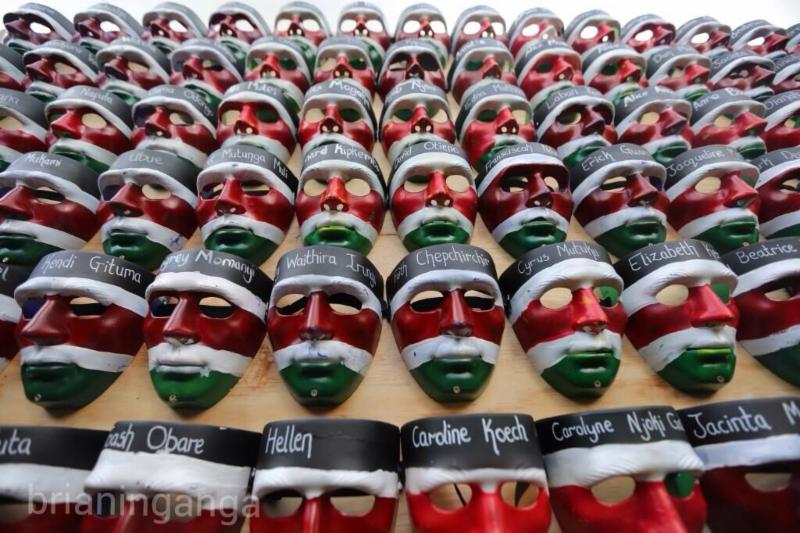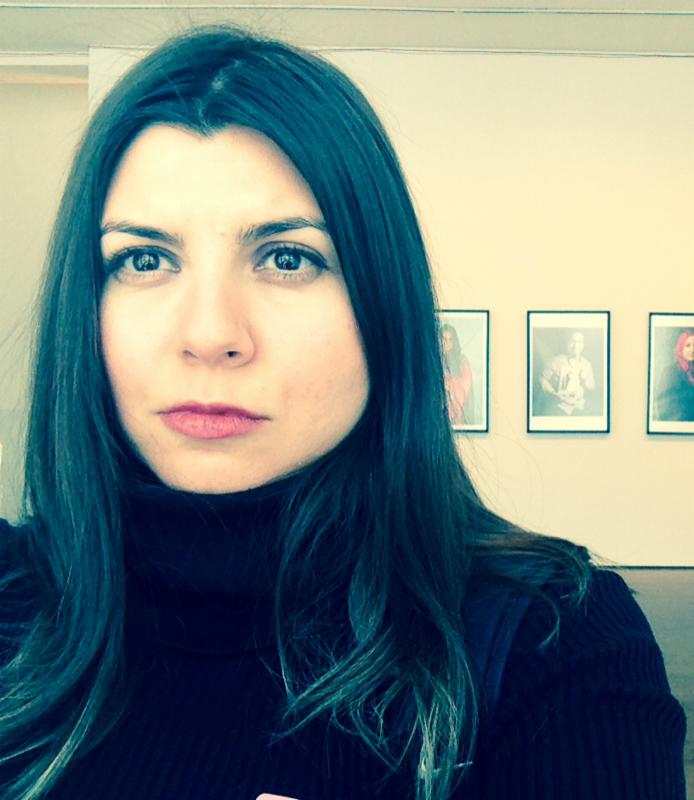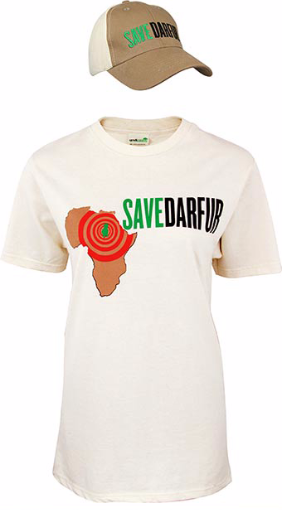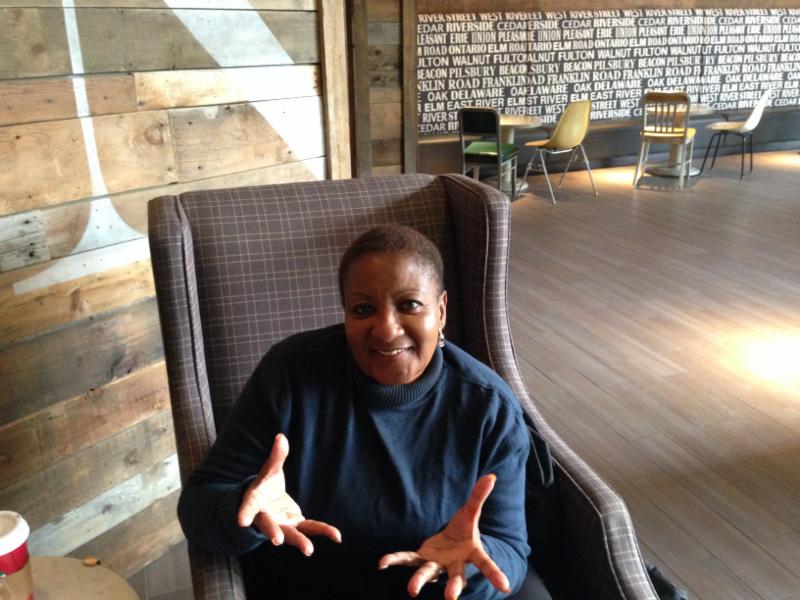Recently I laid over at Amsterdam’s Schiphol Airport, at which the Delta Airlines security agent checked my U.S. passport prior to boarding the plane to Minneapolis. Upon seeing my name and place of birth (Bosnia and Herzegovina), he asked in Serbian if I spoke “our language.” I responded with a “yes, of course,” and he completed the rest of the security procedure in ‘our language,’ revealing that he is a Serb who escaped to the Netherlands in 1991 because he did not want to have to fight the Bosniaks (Bosnian Muslims) or the Croats, as they are all “my people, our people.” more...
News
Wahutu Siguru sat down with Dr. Joachim Salvesberg from the University’s Sociology Department to discuss his new book, Representing Mass Violence: Conflicting Responses to Human Rights Violations in Darfur for the September edition of “Eye on Africa.”
 On the 2nd of April my home country, Kenya, suffered its bloodiest terrorist attack in recent history. The attack by Al-Shabaab was at a university in the town of Garissa, close to the Kenya-Somali border. While it would be tempting to rant and rave about the causes of the attack, the lapse in Kenya’s security forces, or even the almost non-existence of an official government response — not only to the attack but the victims’ and their families’ plight and suffering — I will not. Instead this month’s article is on the 147 students that died, the almost equal number of students considered missing, and the hundreds more that survived and will always have these scars.
On the 2nd of April my home country, Kenya, suffered its bloodiest terrorist attack in recent history. The attack by Al-Shabaab was at a university in the town of Garissa, close to the Kenya-Somali border. While it would be tempting to rant and rave about the causes of the attack, the lapse in Kenya’s security forces, or even the almost non-existence of an official government response — not only to the attack but the victims’ and their families’ plight and suffering — I will not. Instead this month’s article is on the 147 students that died, the almost equal number of students considered missing, and the hundreds more that survived and will always have these scars.
My name is Joshkin Sezer. I am a history major who is starting his third year at the University of Minnesota – Twin Cities. In the Spring Semester of 2015, I enrolled in History of the Holocaust, instructed by Adam Blackler. Near the end of the semester, we got the chance to hear a talk from a Holocaust survivor, Irene Berman. She had just published a book detailing her experience as a child in Norway during the Holocaust and how her family managed to survive.
In July, I had the privilege of presenting at the International Association of Genocide Scholars‘ twelfth meeting in Yerevan, Armenia. The conference’s theme of comparative analysis of twentieth century genocides brought experts from around the world to Armenia’s capital city for five days of presentations, learning, and networking. More than 180 attendees, representing more than two dozen countries, shared their research and insight into many of the twentieth century’s most infamous atrocities. more...
On April 23-25 the Center for Holocaust and Genocide studies, along with the Human Rights Program, Institute for Global Studies and the Ohanessian Chair, marked the centennial of the Armenian Genocide of 1915 with a series of events. This included a keynote by Middle East scholar Bedross Der Matossian, an international student conference titled “One Hundred Years of Genocide: Remembrance, Education, Prevention”, a teacher workshop on World War I and the Armenian Genocide, as well as a guided tour of Bdote, a sacred Dakota site at Ft. Snelling State Park led by Professor Iyekiyapiwin Darlene St. Clair.
The Center for Holocaust and Genocide Studies and the Department of History are pleased to announce the 2015-2016 Bernard and Fern Badzin Fellow in Holocaust and Genocide Studies.
 Yagmur Karakaya is a PhD student in Sociology at the University of Minnesota. She is interested in collective memory, popular culture and narratives of history. Yagmur is currently working on her dissertation project on Ottomania, which focuses on contemporary interest in the Ottoman past in Turkey. She is interested in how different groups of minorities engage with the ways in which Ottoman past is recalled and how they situate themselves in this narrative. During her Badzin Graduate Fellowship year, she will focus on the commemoration of the Holocaust in Turkey, and the relative silence on the Armenian genocide situating both of these phenomena in the current political interest in the Ottoman past. This project will engage with current debates regarding memorialization and denial in the field of Holocaust and genocide studies within the context of Turkey. She will be focusing on two major non-Muslim minorities in Turkey: the Jewish and Armenian population, conducting interviews with the members.
Yagmur Karakaya is a PhD student in Sociology at the University of Minnesota. She is interested in collective memory, popular culture and narratives of history. Yagmur is currently working on her dissertation project on Ottomania, which focuses on contemporary interest in the Ottoman past in Turkey. She is interested in how different groups of minorities engage with the ways in which Ottoman past is recalled and how they situate themselves in this narrative. During her Badzin Graduate Fellowship year, she will focus on the commemoration of the Holocaust in Turkey, and the relative silence on the Armenian genocide situating both of these phenomena in the current political interest in the Ottoman past. This project will engage with current debates regarding memorialization and denial in the field of Holocaust and genocide studies within the context of Turkey. She will be focusing on two major non-Muslim minorities in Turkey: the Jewish and Armenian population, conducting interviews with the members.
Talking to a journalist in Nairobi this weekend, he mentioned something that I thought was as unnerving as it was interesting. The journalist lamented at the fact that it seemed the world had gotten so tired of Darfur that the news of soldiers raping at least 221 women and girls in the village of Tabit last October hardly caused a ripple. The first allegations of the 36-hour rape ordeal came in November when Radio Dabanga (The Hague) initially reported on the crimes. In December, the ICC prosecutor decided to shelve the war crimes probe after almost five years of stagnation by the world court, stating she needed more support to address Sudan’s lack of cooperation, and that the rape of the 200 women and girls in the village “should shock [the] council into action.” Sudanese security forces killed approximately 200 protesters in 2014 and the Sudanese state has been so confident that nothing would happen to it, it created a new force, the Rapid Support Forces, which was accused of having burned 3,000 villages in 2014.
We have come a long way from events that sought to raise awareness such as ‘Rock for Darfur’ (which according to Voice of America had 22 concert in 2006 alone), a long way from buying, and proudly donning, t-shirts  with ‘Save Darfur’ emblazoned on them. Syria, Iraq, Liberia, South Sudan, and Central Africa Republic have overtaken Darfur in the attention sweepstakes in the news. In previous posts I have talked about Compassion Fatigue and the four horsemen of the apocalypse whenever atrocities were covered in the media. However, when is it ok to say enough is enough? When do we, as global citizens, stop shaking our heads and going “tsk tsk, it is so sad what is happening in that country”? These are questions I have asked myself over the past few years. As a graduate student, I have often wondered if my keeping an eye on Darfur is influenced by the fact that my research is in the region. Would it matter as much if my research was on, say, farming practices in Africa? I would like to think it would, if for no reason other than the fact that my country (Kenya) shares a border with South Sudan. I would like to think that whenever I opened the local daily at a coffee shop, or on my way to work in the morning, I would read the news about Darfur and seek out like-minded individuals to try and help in some way, shape or form. What form of help this would be I’m not sure as of yet. So to the question, what have I done for Darfur lately? My honest answer is not as much as I would have liked to do. As Darfur has morphed into a conflict occurring in the shadows (a dreadful prospect) my sense of hopelessness has also increased. What will your answer be?
with ‘Save Darfur’ emblazoned on them. Syria, Iraq, Liberia, South Sudan, and Central Africa Republic have overtaken Darfur in the attention sweepstakes in the news. In previous posts I have talked about Compassion Fatigue and the four horsemen of the apocalypse whenever atrocities were covered in the media. However, when is it ok to say enough is enough? When do we, as global citizens, stop shaking our heads and going “tsk tsk, it is so sad what is happening in that country”? These are questions I have asked myself over the past few years. As a graduate student, I have often wondered if my keeping an eye on Darfur is influenced by the fact that my research is in the region. Would it matter as much if my research was on, say, farming practices in Africa? I would like to think it would, if for no reason other than the fact that my country (Kenya) shares a border with South Sudan. I would like to think that whenever I opened the local daily at a coffee shop, or on my way to work in the morning, I would read the news about Darfur and seek out like-minded individuals to try and help in some way, shape or form. What form of help this would be I’m not sure as of yet. So to the question, what have I done for Darfur lately? My honest answer is not as much as I would have liked to do. As Darfur has morphed into a conflict occurring in the shadows (a dreadful prospect) my sense of hopelessness has also increased. What will your answer be?
Wahutu Siguru is the 2013 Badzin Fellow in Holocaust and Genocide Studies and PhD candidate in the Sociology department at the University of Minnesota. Siguru’s research interests are in the Sociology of Media, Genocide, Mass Violence and Atrocities (specifically on issues of representation of conflicts in Africa such as Darfur and Rwanda), Collective Memory, and perhaps somewhat tangentially Democracy and Development in Africa.
Event Review: International Symposium “Reframing Mass Violence: Social Memories and Human Rights in Post-Communist Europe”
(IAS Collaborative)
March 4-6, 2015
An international symposium on “Contested Past, Contested Present: Social Memories and Human Rights in Post-Communist Europe” took place at the University of Minnesota, Twin Cities on March 4-6. It was organized by the IAS Collaborative “Reframing Mass Violence”, and sponsored by the Human Rights Program and the Center for Holocaust and Genocide Studies, among other supporters.
 Utjiua Muinjangue is the chairperson of the Ovaherero and Ovambanderu Genocide Foundation. Ms. Muinjangue spoke on behalf of the school of Social Work at the University of Minnesota on the genocide of the Herero on November 10, 2014.
Utjiua Muinjangue is the chairperson of the Ovaherero and Ovambanderu Genocide Foundation. Ms. Muinjangue spoke on behalf of the school of Social Work at the University of Minnesota on the genocide of the Herero on November 10, 2014.
Wahutu Siguru sat down with Dr. Joachim Salvesberg from the University’s Sociology Department to discuss his new book, Representing Mass Violence: Conflicting Responses to Human Rights Violations in Darfur for the September edition of “Eye on Africa.”
 On the 2nd of April my home country, Kenya, suffered its bloodiest terrorist attack in recent history. The attack by Al-Shabaab was at a university in the town of Garissa, close to the Kenya-Somali border. While it would be tempting to rant and rave about the causes of the attack, the lapse in Kenya’s security forces, or even the almost non-existence of an official government response — not only to the attack but the victims’ and their families’ plight and suffering — I will not. Instead this month’s article is on the 147 students that died, the almost equal number of students considered missing, and the hundreds more that survived and will always have these scars.
On the 2nd of April my home country, Kenya, suffered its bloodiest terrorist attack in recent history. The attack by Al-Shabaab was at a university in the town of Garissa, close to the Kenya-Somali border. While it would be tempting to rant and rave about the causes of the attack, the lapse in Kenya’s security forces, or even the almost non-existence of an official government response — not only to the attack but the victims’ and their families’ plight and suffering — I will not. Instead this month’s article is on the 147 students that died, the almost equal number of students considered missing, and the hundreds more that survived and will always have these scars.
My name is Joshkin Sezer. I am a history major who is starting his third year at the University of Minnesota – Twin Cities. In the Spring Semester of 2015, I enrolled in History of the Holocaust, instructed by Adam Blackler. Near the end of the semester, we got the chance to hear a talk from a Holocaust survivor, Irene Berman. She had just published a book detailing her experience as a child in Norway during the Holocaust and how her family managed to survive.
In July, I had the privilege of presenting at the International Association of Genocide Scholars‘ twelfth meeting in Yerevan, Armenia. The conference’s theme of comparative analysis of twentieth century genocides brought experts from around the world to Armenia’s capital city for five days of presentations, learning, and networking. More than 180 attendees, representing more than two dozen countries, shared their research and insight into many of the twentieth century’s most infamous atrocities. more...
On April 23-25 the Center for Holocaust and Genocide studies, along with the Human Rights Program, Institute for Global Studies and the Ohanessian Chair, marked the centennial of the Armenian Genocide of 1915 with a series of events. This included a keynote by Middle East scholar Bedross Der Matossian, an international student conference titled “One Hundred Years of Genocide: Remembrance, Education, Prevention”, a teacher workshop on World War I and the Armenian Genocide, as well as a guided tour of Bdote, a sacred Dakota site at Ft. Snelling State Park led by Professor Iyekiyapiwin Darlene St. Clair.
The Center for Holocaust and Genocide Studies and the Department of History are pleased to announce the 2015-2016 Bernard and Fern Badzin Fellow in Holocaust and Genocide Studies.
 Yagmur Karakaya is a PhD student in Sociology at the University of Minnesota. She is interested in collective memory, popular culture and narratives of history. Yagmur is currently working on her dissertation project on Ottomania, which focuses on contemporary interest in the Ottoman past in Turkey. She is interested in how different groups of minorities engage with the ways in which Ottoman past is recalled and how they situate themselves in this narrative. During her Badzin Graduate Fellowship year, she will focus on the commemoration of the Holocaust in Turkey, and the relative silence on the Armenian genocide situating both of these phenomena in the current political interest in the Ottoman past. This project will engage with current debates regarding memorialization and denial in the field of Holocaust and genocide studies within the context of Turkey. She will be focusing on two major non-Muslim minorities in Turkey: the Jewish and Armenian population, conducting interviews with the members.
Yagmur Karakaya is a PhD student in Sociology at the University of Minnesota. She is interested in collective memory, popular culture and narratives of history. Yagmur is currently working on her dissertation project on Ottomania, which focuses on contemporary interest in the Ottoman past in Turkey. She is interested in how different groups of minorities engage with the ways in which Ottoman past is recalled and how they situate themselves in this narrative. During her Badzin Graduate Fellowship year, she will focus on the commemoration of the Holocaust in Turkey, and the relative silence on the Armenian genocide situating both of these phenomena in the current political interest in the Ottoman past. This project will engage with current debates regarding memorialization and denial in the field of Holocaust and genocide studies within the context of Turkey. She will be focusing on two major non-Muslim minorities in Turkey: the Jewish and Armenian population, conducting interviews with the members.
Talking to a journalist in Nairobi this weekend, he mentioned something that I thought was as unnerving as it was interesting. The journalist lamented at the fact that it seemed the world had gotten so tired of Darfur that the news of soldiers raping at least 221 women and girls in the village of Tabit last October hardly caused a ripple. The first allegations of the 36-hour rape ordeal came in November when Radio Dabanga (The Hague) initially reported on the crimes. In December, the ICC prosecutor decided to shelve the war crimes probe after almost five years of stagnation by the world court, stating she needed more support to address Sudan’s lack of cooperation, and that the rape of the 200 women and girls in the village “should shock [the] council into action.” Sudanese security forces killed approximately 200 protesters in 2014 and the Sudanese state has been so confident that nothing would happen to it, it created a new force, the Rapid Support Forces, which was accused of having burned 3,000 villages in 2014.
We have come a long way from events that sought to raise awareness such as ‘Rock for Darfur’ (which according to Voice of America had 22 concert in 2006 alone), a long way from buying, and proudly donning, t-shirts  with ‘Save Darfur’ emblazoned on them. Syria, Iraq, Liberia, South Sudan, and Central Africa Republic have overtaken Darfur in the attention sweepstakes in the news. In previous posts I have talked about Compassion Fatigue and the four horsemen of the apocalypse whenever atrocities were covered in the media. However, when is it ok to say enough is enough? When do we, as global citizens, stop shaking our heads and going “tsk tsk, it is so sad what is happening in that country”? These are questions I have asked myself over the past few years. As a graduate student, I have often wondered if my keeping an eye on Darfur is influenced by the fact that my research is in the region. Would it matter as much if my research was on, say, farming practices in Africa? I would like to think it would, if for no reason other than the fact that my country (Kenya) shares a border with South Sudan. I would like to think that whenever I opened the local daily at a coffee shop, or on my way to work in the morning, I would read the news about Darfur and seek out like-minded individuals to try and help in some way, shape or form. What form of help this would be I’m not sure as of yet. So to the question, what have I done for Darfur lately? My honest answer is not as much as I would have liked to do. As Darfur has morphed into a conflict occurring in the shadows (a dreadful prospect) my sense of hopelessness has also increased. What will your answer be?
with ‘Save Darfur’ emblazoned on them. Syria, Iraq, Liberia, South Sudan, and Central Africa Republic have overtaken Darfur in the attention sweepstakes in the news. In previous posts I have talked about Compassion Fatigue and the four horsemen of the apocalypse whenever atrocities were covered in the media. However, when is it ok to say enough is enough? When do we, as global citizens, stop shaking our heads and going “tsk tsk, it is so sad what is happening in that country”? These are questions I have asked myself over the past few years. As a graduate student, I have often wondered if my keeping an eye on Darfur is influenced by the fact that my research is in the region. Would it matter as much if my research was on, say, farming practices in Africa? I would like to think it would, if for no reason other than the fact that my country (Kenya) shares a border with South Sudan. I would like to think that whenever I opened the local daily at a coffee shop, or on my way to work in the morning, I would read the news about Darfur and seek out like-minded individuals to try and help in some way, shape or form. What form of help this would be I’m not sure as of yet. So to the question, what have I done for Darfur lately? My honest answer is not as much as I would have liked to do. As Darfur has morphed into a conflict occurring in the shadows (a dreadful prospect) my sense of hopelessness has also increased. What will your answer be?
Wahutu Siguru is the 2013 Badzin Fellow in Holocaust and Genocide Studies and PhD candidate in the Sociology department at the University of Minnesota. Siguru’s research interests are in the Sociology of Media, Genocide, Mass Violence and Atrocities (specifically on issues of representation of conflicts in Africa such as Darfur and Rwanda), Collective Memory, and perhaps somewhat tangentially Democracy and Development in Africa.
Event Review: International Symposium “Reframing Mass Violence: Social Memories and Human Rights in Post-Communist Europe”
(IAS Collaborative)
March 4-6, 2015
An international symposium on “Contested Past, Contested Present: Social Memories and Human Rights in Post-Communist Europe” took place at the University of Minnesota, Twin Cities on March 4-6. It was organized by the IAS Collaborative “Reframing Mass Violence”, and sponsored by the Human Rights Program and the Center for Holocaust and Genocide Studies, among other supporters.
 Utjiua Muinjangue is the chairperson of the Ovaherero and Ovambanderu Genocide Foundation. Ms. Muinjangue spoke on behalf of the school of Social Work at the University of Minnesota on the genocide of the Herero on November 10, 2014.
Utjiua Muinjangue is the chairperson of the Ovaherero and Ovambanderu Genocide Foundation. Ms. Muinjangue spoke on behalf of the school of Social Work at the University of Minnesota on the genocide of the Herero on November 10, 2014.
